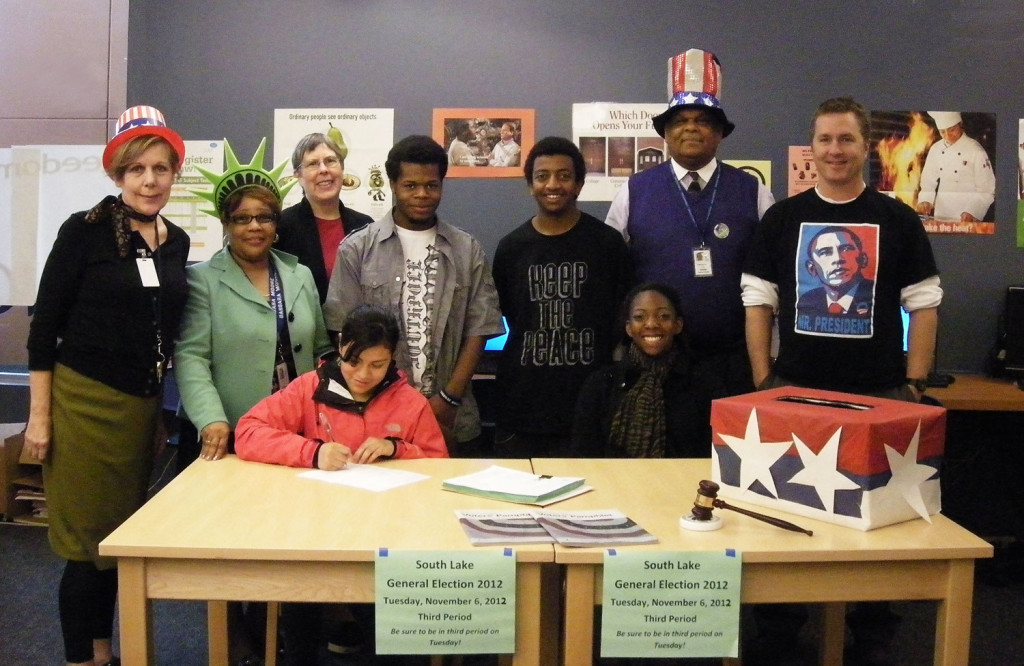Philosophy
Core Philosophy of Civics for All:
Admitting the Problem: Our Schools Neglect Citizenship Education
If we are concerned that a great many of our students graduate without knowing a wit about democracy, we adults need to recognize that it is our fault, not theirs. We have allowed the marginalization of citizenship education in the name of skills focused lessons to prepare kids for standardized tests. That is a simple fact and an uncomfortable truth that we must address and act upon if we as a city want to reassert the primacy of civics and democratic citizenship in our children’s lives.
Restoring Citizenship Education Restores Student Voice & Interest in School
“What is your Credo?” This question lies at the heart of Civics for All.Cultivating an authentic, scholarly commitment to citizenship is not only a K-12 endeavor, it is a lifelong process. It depends upon the formation of the child’s sense of self-respect and unique belief system. The cultivation of each child’s largely pre-existent civic, ethical, and political beliefs creates the foundation from which the child sincerely chooses to embrace his civic duty to interact with and support the needs of other citizens and of the Common Good. When our children’s civic identities are kindled they gain a sense of agency and hope that many of them lack. The cognitive growth that accompanies this development is paralleled by increased academic achievement.
The “civics deficit” among many of our at-risk students and struggling learners is shocking, yet a high percentage of all of our students struggle to articulate even the most basic understanding of the fundamentals of civics, politics, and government. It is a crisis, as Justice Sandra Day O”Connor O’Connor said last year. The deficit can be erased but it will take an “all-hands on deck” approach where all teachers in every discipline and in every school integrate democratic and civic principles into their lessons and unit plans.
When students and staff all share a K-12 vertically integrated set of core principles, essential questions, and common instructional language the entire school benefits from the clear structure.
Teaching and Learning for the Common Good
When teachers and schools come together to provide meaningful, relevant, and well organized civics lessons and activities our students invariably and joyfully rally to the call of citizenship and the defense of the Common Good. Like many other teachers, I have seen civics based lessons inspire students, especially marginalized and at-risk scholars, to study harder, learn more, and get better grades. Indeed, it is fair to say that the affective power of civic learning and engagement is often transformative and can propel kids towards profound personal growth and dramatic increases in self-esteem and academic achievement.
“If there be time to expose through discussion the falsehood and fallacies, to avert the evil by the processes of education, the remedy to be applied is more speech, not enforced silence.”
– Supreme Court Justice, Louis D. Brandeis,
Whitney v. California, 1927






